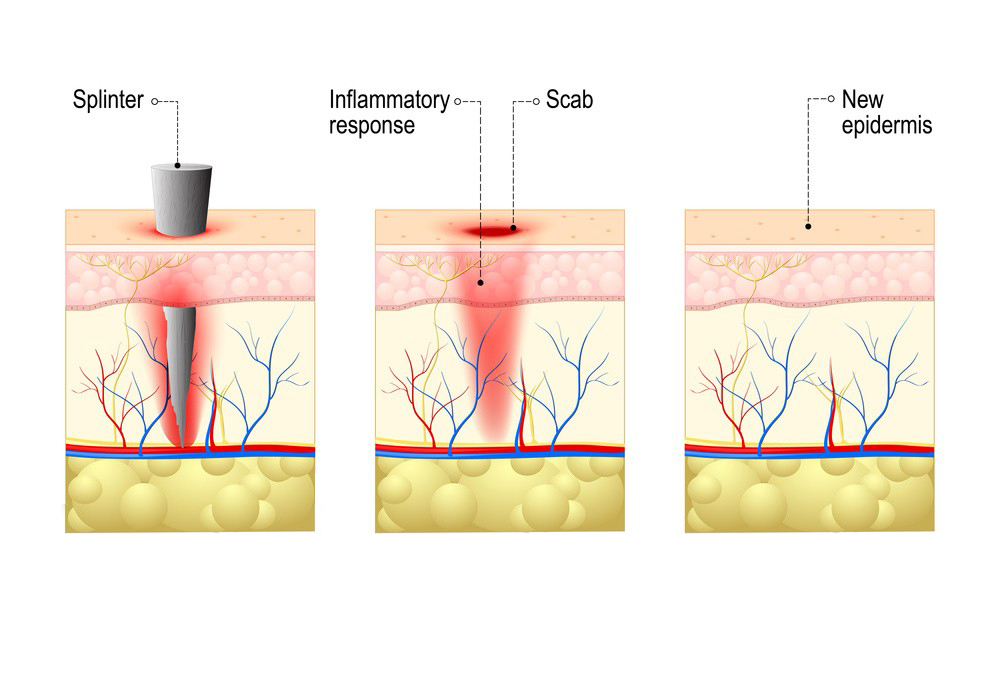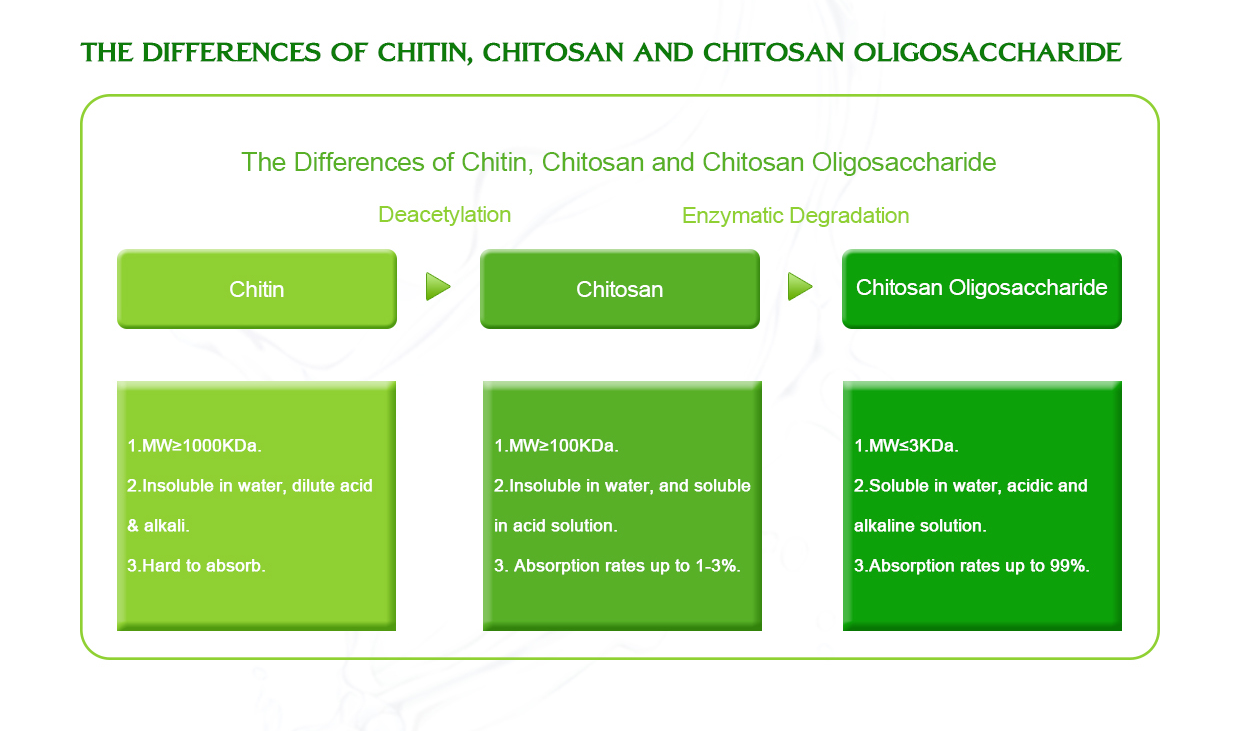Chitosan is a biopolymer derived from chitin, which is a natural compound found in the shells of crustaceans like shrimp, crab, and lobster. Chitin is a complex carbohydrate that provides structural support to the exoskeletons of these animals. Chitosan is produced by deacetylating chitin through a chemical process, which involves removing acetyl groups from the chitin molecule.
Chitosan has various applications in different fields due to its unique properties:
Biomedical Applications: Chitosan is biocompatible and has been studied for its potential use in wound healing, tissue engineering, drug delivery, and as a material for surgical sutures. Its antimicrobial properties also make it suitable for wound dressings and antibacterial coatings.
Nutraceutical and Dietary Supplements: Chitosan is sometimes used as a dietary supplement due to its potential to bind to dietary fats in the digestive tract, leading to reduced fat absorption. It has been marketed as a weight loss aid, although its effectiveness for this purpose is debated.
Agriculture and Horticulture: Chitosan is used in agriculture as a natural plant growth enhancer and for pest and disease control. It can improve plant resistance to pathogens and enhance nutrient uptake.
Water Treatment: Chitosan’s ability to coagulate particles and absorb heavy metals has led to its use in water treatment processes for purification and metal ion removal.
Food Industry: Chitosan is used as a food preservative and packaging material due to its antimicrobial properties. It can extend the shelf life of perishable foods and inhibit the growth of certain bacteria.
Cosmetics and Skincare: Chitosan is sometimes included in cosmetic and skincare products for its moisturizing and skin-conditioning properties.

It’s important to note that while chitosan has various potential uses, its effectiveness can vary based on factors such as the source of chitin, the degree of deacetylation, and the specific application. Research and development in this field continue to explore new and innovative uses for chitosan-based materials.
How to use chitosan for best results?
Chitosan is a natural biopolymer derived from chitin, which is found in the shells of crustaceans like shrimp and crabs. It has gained attention for its potential benefits in various applications, including weight management and water treatment. If you’re considering using chitosan for a specific purpose, here are some general guidelines for obtaining the best results:
Weight Management:
Chitosan is often marketed as a dietary supplement for weight loss due to its purported ability to bind to dietary fats and prevent their absorption. However, scientific evidence supporting its effectiveness for weight loss is limited and mixed.
- Dosage: If you decide to use chitosan for weight management, follow the dosing instructions on the product label. Typical dosages may range from 1-3 grams before a high-fat meal. Consult with a healthcare professional before starting any new supplement regimen.
- Diet and Exercise: Remember that chitosan is not a magic solution for weight loss. It should be combined with a balanced diet and regular exercise for the best results.
Water Treatment:
Chitosan can also be used in water treatment processes to remove impurities and contaminants.
- Coagulation and Flocculation: Chitosan can be added to water to aid in coagulation and flocculation, helping to aggregate and settle suspended particles. The dosage will vary depending on the specific water treatment process and the concentration of contaminants.
- PH and Mixing: The effectiveness of chitosan in water treatment can be influenced by factors like PH and mixing conditions. Optimal pH levels and proper mixing should be determined through experimentation or by following guidelines provided by water treatment experts.
- Testing and Monitoring: Regular testing and monitoring of water quality are crucial when using chitosan for water treatment. Adjustments to the chitosan dosage and treatment process may be necessary based on the results of water quality tests.
Wound Healing and Medical Applications:
Chitosan’s properties, such as its biocompatibility and antibacterial effects, make it useful in medical applications, including wound healing and drug delivery.
- Formulation: Chitosan can be incorporated into various formulations, such as gels, creams, or dressings, for wound healing. Consult with a healthcare professional or a medical expert to determine the appropriate formulation and application method.
- Hygiene and Sterility: When using chitosan for medical applications, ensure proper hygiene and sterility to prevent infections or complications.

Always keep in mind that individual responses to chitosan may vary, and its effectiveness for specific purposes is still an area of ongoing research. Before using chitosan for any purpose, it’s important to consult with a healthcare professional or a relevant expert to ensure that it’s safe and appropriate for your specific needs and circumstances.
